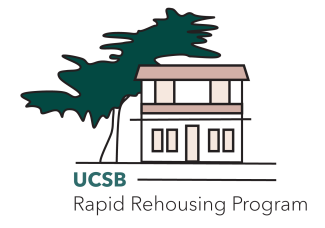Emergency Housing
Rapid Rehousing Program
The Rapid Rehousing Program works in conjunction with the Financial Crisis Response Team to connect students experiencing housing insecurity to housing resources.
If a student is at an immediate risk of being houseless, they may be eligible for the following:
- Transitional Housing: Temporary housing for up to 25 days for students who lack safe and stable housing. Free meal plans and case management are included during a students' stay.
- Housing Vouchers: One-time emergency rental assistance grants applicable to on and off campus living arrangements. Grant award amounts are determined on a case by case basis.
- Case Management: The Financial Crisis Response Team works with students to find long term solutions to students' basic needs and provides a holistic service in order to connect students to respective basic needs resources on campus as well as in the community.

To be eligible for these programs, students must be currently enrolled at least half time. Email financialcrisis@sa.ucsb.edu to begin the application process. Documentation is required to determine a students' eligibility.
Domestic Violence Situations
Domestic violence survivors and their children may stay in one of their two confidential emergency shelters for up to 60 days. While in their shelters, they receive emotional support, food, clothing, goal planning assistance, advocacy for medical, legal and financial resources, along with any other information and referrals they may need. Additionally, DVS offers permanent project-based Section 8 housing for survivors.
The housing sites are confidential, please contact their 24-hour crisis and information hotline at 805-964-5245, or email info@dvsolutions.org.
For more information go to Domestic Violence Solutions' housing programs.
Freedom Warming Centers
The Unitarian Society of Santa Barbara provides overnight accommodations at religious centers during the inclement weather that can cause hardships for individuals without shelters between November 15th and March 31. Guests receive hot meals, personal toiletry items, and resources to health and wellness clinics.
There are five locations serving Santa Barbara County: Carpinteria, Isla Vista, Lompoc, Santa Barbara, and Santa Maria.
For more information go to Freedom Warming Centers.
Santa Barbara Rescue Mission
Located between Oxnard and Santa Maria, the Santa Barbara Rescue Mission provides hot meals, showers, and overnight stays daily year-round. The Rescue Mission aims to tackle substance abuse and has a long-term recovery for the homeless and addicted.
There are also year long residential programs for men and women to tackle addiction issues through building a faith based recovery process.
For more information go to Santa Barbara Rescue Mission.
Longer Term Programs
Path Santa Barbara
An interim housing facility, PATH is dedicated towards individuals, families and veterans who have the goal of achieving a stable housing situation, health, and income. PATH serves the community by building and operating affordable rental homes paired with on-site services that offer residents knowledge in regaining long-term stability.
For more information go to PATH Santa Barbara.
Transition House
Capable and motivated families with children are offered life tools to restore self-sufficiency through active participation in its 30-120 day program addressing the challenges of securing employment, relationships, education, and the like. If eligible, one must sign up in person.
For more information go to Transition House.
Turning Point Foundation
The Turning Point Foundation has various housing programs catered to recovery for those with mental health issues and homelessness. Programs are located in Ventura and Oxnard and are designed for participants to increase community integration and permanent residential stability.
For more information go to Transition House.
Will Bridge
A transitional housing facility that has a housing program where residents who demonstrate readiness are able to reside in subsidized housing with 30% of their income solely dedicated towards housing expenses and available services addressing the challenges of securing employment, relationships, education, and the like. Will Bridge encourages participants to move towards independence between 1-4 years after receiving support from its permanent supportive housing program.
For more information go to Will Bridge.